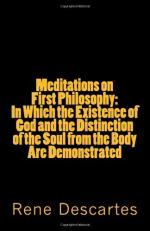Sect. XXIV. Of Food.
What is more noble than a machine which continually repairs and renews itself? The animal, stinted to his own strength, is soon tired and exhausted by labour; but the more he takes pains, the more he finds himself pressed to make himself amends for his labour, by more plentiful feeding. Aliments daily restore the strength he had lost. He puts into his body another substance that becomes his own, by a kind of metamorphosis. At first it is pounded, and being changed into a liquor, it purifies, as if it were strained through a sieve, in order to separate anything that is gross from it; afterwards it arrives at the centre, or focus of the spirits, where it is subtilised, and becomes blood. And running at last, and penetrating through numberless vessels to moisten all the members, it filtrates in the flesh, and becomes itself flesh. So many aliments, and liquors of various colours, are then no more than one and the same flesh; and food which was but an inanimate body preserves the life of the animal, and becomes part of the animal himself; the other parts of which he was composed being exhaled by an insensible and continual transpiration. The matter which, for instance, was four years ago such a horse, is now but air, or dung. What was then either hay, or oats, is become that same horse, so fiery and vigorous—at least, he is accounted the same horse, notwithstanding this insensible change of his substance.
Sect. XXV. Of Sleep.




